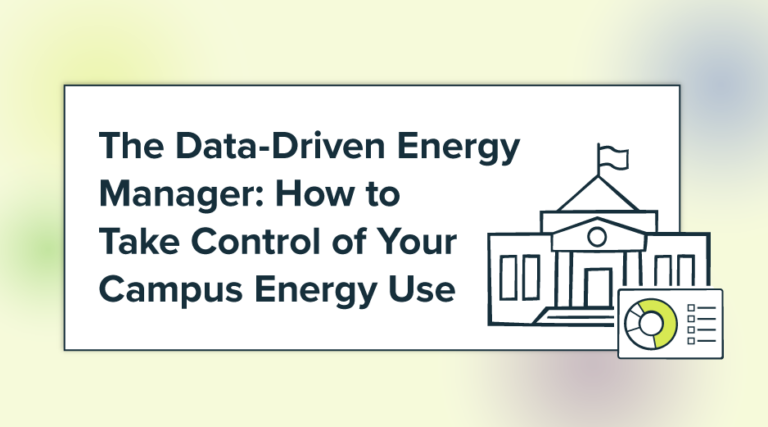I recently watched a powerful TED Talk by self-identified introvert Susan Cain. She believes that our culture rewards extroverts and ignores introverts, and consequently, our culture misses out on the benefits that introverts bring. This got me thinking about extroversion and introversion in the workplace.

Do introverts or do extroverts make better energy managers?
Christopher Russell, Energy Manager for Howard County, Maryland (an EnergyCAP client) writes on the County’s blog: “An energy manager is a communicator, negotiator, coach, analyst, and advocate of change.”
I don’t know about you, but I would match four of the five roles—communicator, negotiator, coach, and advocate of change—to extroverts because they involve talking with people, taking risks, and engaging in conflict. And I would match one role—analyst—to introvert because analysis requires focused, solitary attention. Four roles to one would prove that extroverts make better energy managers.
But hold on there, it’s not that simple. Experts say that defining introversion and extroversion is difficult. In her bestselling book, Quiet: The Power of Introverts in a World That Can’t Stop Talking, Susan Cain writes, “I soon discovered that there is no all-purpose definition of introversion or extroversion.”
However, says Cain, there is agreement in three areas:
Outside Stimulation
Introverts prefer less stimulation like people, noise, and multiple things happening at the same time, while extroverts prefer more stimulation like having new experiences, meeting new people, and making noise.
Work Habits
Introverts work slower and more intentionally, do less at one time, and are good at focusing, while extroverts jump into assignments fast, make decisions quicker, and do more at one time.
Social Skills
Introverts prefer a few but deep friendships, listen well, think before speaking, prefer writing over conversing, and dislike conflict, while extroverts think and act quickly, would rather talk than listen, are fine with conflict, are good with small talk, and sometimes get into trouble with their words.
Beyond these areas, there’s no consensus of what makes an introvert or extrovert, which makes answering our question difficult.
What also complicates it is that the job of Energy Manager varies widely. There’s not a standard job description, which means an energy manager in San Antonio could be doing very different things than an energy manager in Saskatooon.
Instead of thinking about the entire job, it makes better sense to think in terms of job tasks. Which job tasks are more introverted and which are more extroverted? In his blog post, Christopher Russell lists ten job tasks for energy managers.
I’ve categorized Russell’s descriptions to the relative level of introversion or extroversion. See if you agree:
Introversion Tasks
- Utility bill auditing. You’ll need to understand utility tariffs and analyze bills for accuracy.
- Energy and asset inventorying. Prepare a balance summary of energy inputs and end-uses.
- Performance benchmarking: energy flow monitoring, metering, and verification. Create performance metrics that demonstrate progress over time.
- Business plan development: goals, targets, accountabilities and metrics. Make the business case to secure the resources you’ll need for continuous energy improvement. Think “process,” not “project.”
- Fuel switching & commodity shopping. Shop for fuel and power, minimizing price risk using financial portfolio management techniques.
Extroversion Tasks
- Employee engagement to boost awareness. Use media to reach the right people with the right message. Make compelling messages so that staff understand their responsibilities with respect to energy use.
- Project management. Orchestrate staff, vendors, budgets, and task milestones to achieve project implementation.
- Best practice definition, training, and procedural implementation. Train staff and ensure that energy-saving behaviors become part of standard operating procedure.
- Relationship management with vendors and utilities. Match your inventory of in-house needs and capabilities with the capabilities and incentives offered by these business allies.
- Performance reporting and shareholder communications. Document and promote your results while gaining recognition for your company.
My conclusion? These job requirements are split right down the middle. If Susan Cain can get up in front of an audience, I’m certainly not going to discount the social abilities of any introverted energy manager I might meet. I’m an introvert, after all!
The key to success for introverts and extroverts in energy management is to know what tasks energize you and what tasks fatigue you. This helps you manage your work day properly.
Don’t schedule tasks back-to-back that take you too far from your comfort zone; they’ll sap your energy. Instead, tackle a task from your sweet spot that rejuvenates you before moving to less preferred ones.
Knowing yourself helps you succeed at work.
{{cta(‘1d34a06f-79e8-45c0-ab9c-1dc6ea1e407e’)}}
 Best-in-class portfolio-level energy and utility bill data management and reporting.
Best-in-class portfolio-level energy and utility bill data management and reporting.
 Real-time energy and sustainability analytics for high-performance, net-zero buildings.
Real-time energy and sustainability analytics for high-performance, net-zero buildings.
 A holistic view of financial-grade scope 1, 2, and 3 carbon emissions data across your entire business.
A holistic view of financial-grade scope 1, 2, and 3 carbon emissions data across your entire business.
 Energy and sustainability benchmarking compliance software designed for utilities.
Energy and sustainability benchmarking compliance software designed for utilities.



